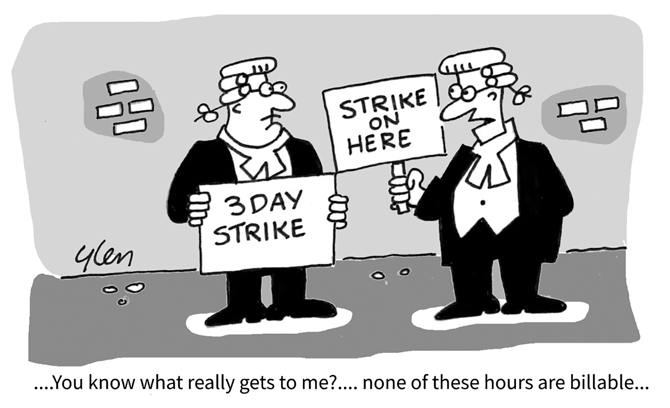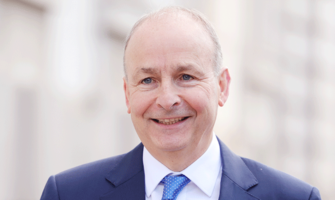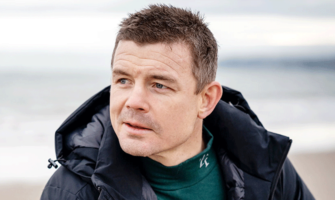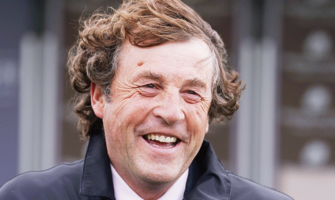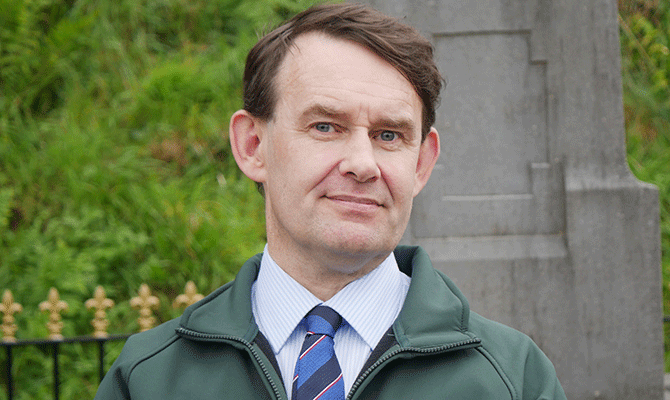
Justin Barrett
SOME OBSERVERS feared that a poor showing for new-right movements in Ireland in the local government and European Parliament elections might push a section of these movements towards more extreme politics. There is ample evidence that this fear of anger and disillusionment fuelling radicalisation was well founded. Just weeks after the June elections, Irish far-right actors took part in a number of talks on social media platforms that certainly pushed well beyond any aspiring politician’s Overton window. On June 23 National Party (NP) leader Justin Barrett appeared on Nordic Frontier, an English-language podcast of the Nordic Resistance Movement (NRM), a transnational organisation that brings together neo-Nazi activists from across Sweden, Finland, Norway, Denmark and Iceland.
Just a week before, the US Department of State announced that NRM and three of its leaders were now categorised as “specially designated global terrorists”.
In a press statement, US Department of State spokesman Matthew Miller said the categorisation was due to the fact that “NRM’s violent activity is based on its openly racist, anti-immigrant, antisemitic and anti-LGBTQI+ platform” and that “NRM members have also taken steps to collect and prepare weapons and explosive materials, including on behalf of the group and in furtherance of its goals. In addition, NRM has organised training in violent tactics, including hand-to-hand combat and knife fighting.”
The NRM, founded in 1997, is infamous for violent attacks its members and leaders have carried out against political opponents, protestors, journalists etc. The Nordic Frontier podcast is open about its politics, with its logo incorporating a swastika, while the host describes the show in his preamble as both a “national socialist podcast” and “the Final Solution to your podcast problem!”
Barrett himself leaned into the podcast’s extreme atmosphere, claiming that he first read Adolf Hitler’s Mein Kampf at the age of eight and was convinced by it in relation to the “Jewish question” and describes Hitler as “singularly the most important political figure in Europe”. He adds: “I’m expressing a modernised, updated without being diluted, version of exactly the same principles.”
Throughout the three-and-half-hour episode, Barrett is openly antisemitic. He sneeringly dismisses the Holocaust a number of times and expresses hackneyed antisemitic tropes about Jewish control of the media, Hollywood, banking, abortion etc. He also explains that, in earlier NP videos on YouTube, when he used the phrase “international finance capital” he meant Jews.
In April Barrett launched Clann Éireann (CÉ) as the ongoing row for control of the NP rumbles on. On Nordic Frontier, produced by the NRM, he says CÉ’s role is to create an ideological vanguard committed to national socialist ideas. He describes how it will have a uniformed security wing, Sciath Náisiúnta or the National Shield, as they could not rely on the police to protect them.
In the same week a far-right activist from Offaly, Gavin Lowbridge, hosted Australian neo-Nazi Blair Cottrell on his Off-Grid Ireland podcast. With over 10,000 subscribers on Telegram and over 13,000 followers on X, Off-Grid Ireland provides a large platform for Cottrell to express his extreme-right agenda.
Cottrell was a founding member of the United Patriots Front and the Lads Society in Australia and has a number of convictions for inciting hatred. In a Facebook post Cottrell argues that a picture of Hitler should be hung in every Australian classroom and all students should be issued a copy of Mein Kampf.
When asked on Off-Grid Ireland about the Dublin riots in November, Cottrell replied: “The Government has no right to be shaming the Irish people for rioting over something like that. You have a right to be angry.”
Cottrell also says: “There should be white privilege in white countries.” He dismisses the idea of “human equality and race just being skin colour and not important”, stating: “You need to challenge that because, if we can’t challenge that, if we can’t destroy the egalitarian concept, I don’t think we are going to get to the bottom of the problem.”
